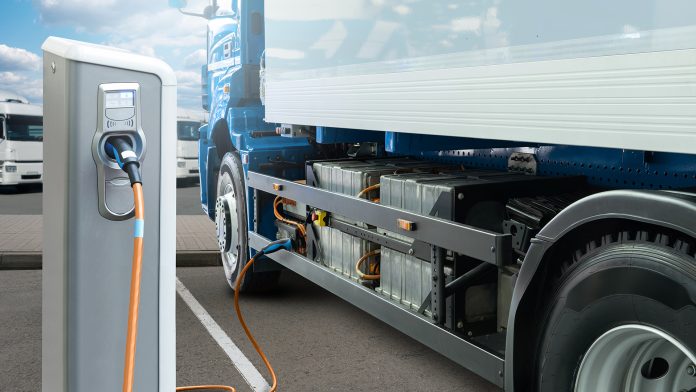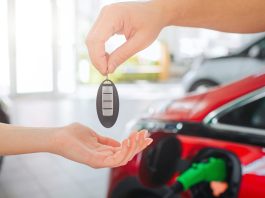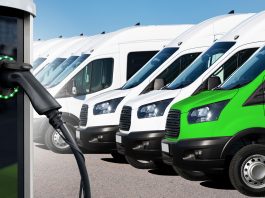A University of Michigan study has highlighted the potential of combining automation and electric trucks to mitigate urban health impacts and environmental damages associated with long-haul trucking.
The research, ‘Automation and electrification in long-haul trucking cuts urban health and environmental damages,’ found that combining electric trucks and automation could save more than $500m in environmental costs each year.
Lead author Parth Vaishnav, assistant professor at the U-M School for Environment and Sustainability, explained: “It’s the first study we know of that simultaneously studies a realistic model of automation and a realistic model of electrification—things that are feasible in the near term—and assesses their environmental benefits.”
Benefits of electric trucks and automation
The decision to focus on automation and electrification stems from the complementary nature of these innovations.
While electrification is feasible for shorter routes, challenges arise for longer distances due to current battery technology limitations.
Conversely, automation excels in interstates but faces hurdles within urban environments.
By amalgamating automation for highway driving with electrification for urban segments, the study aimed to target areas where tailpipe pollution poses the most significant threat to public health.
The investigation identified significant reductions in air pollution and greenhouse gas damage by adopting automation and electric trucks.
For routes below 300 miles, electric trucks alone can slash air pollution and greenhouse gas damages by 13%, translating to a saving of $587m annually.
On longer routes exceeding 300 miles, electrification of urban segments through hub-based automation of highway driving can yield a remarkable 35% reduction in damages, amounting to $220m annually.
Vaishnav explained that the integration of both technologies offers a synergistic approach to address the challenges posed by long-haul trucking.
Surprising discoveries
Vaishnav acknowledged a common concern regarding the trade-off between battery size and truck efficiency.
However, the study reveals that this efficiency penalty is minimal, around 3%, signifying a promising outlook for standardised battery sizes without compromising performance.
Policy implications
In light of the Biden administration’s focus on heavy truck regulations, the study emphasises the outsized benefits of electrification even with existing technology.
However, realising these benefits of electric trucks hinges on the development of a robust charging infrastructure and grid reinforcement tailored to trucking needs.
Furthermore, the study suggests opportunities for regulatory and operational innovation, such as repurposing brownfield sites for trucking infrastructure, demonstrating the potential for creative solutions to address environmental challenges.
The University of Michigan’s study underscores the transformative potential of integrating automation and electrification in long-haul trucking.
By strategically targeting routes and leveraging existing technologies, significant strides can be made in reducing urban health impacts and environmental damages associated with freight transportation.
As policymakers navigate the landscape of heavy truck regulations, the study offers valuable insights into harnessing innovation to build a sustainable and efficient trucking industry.









